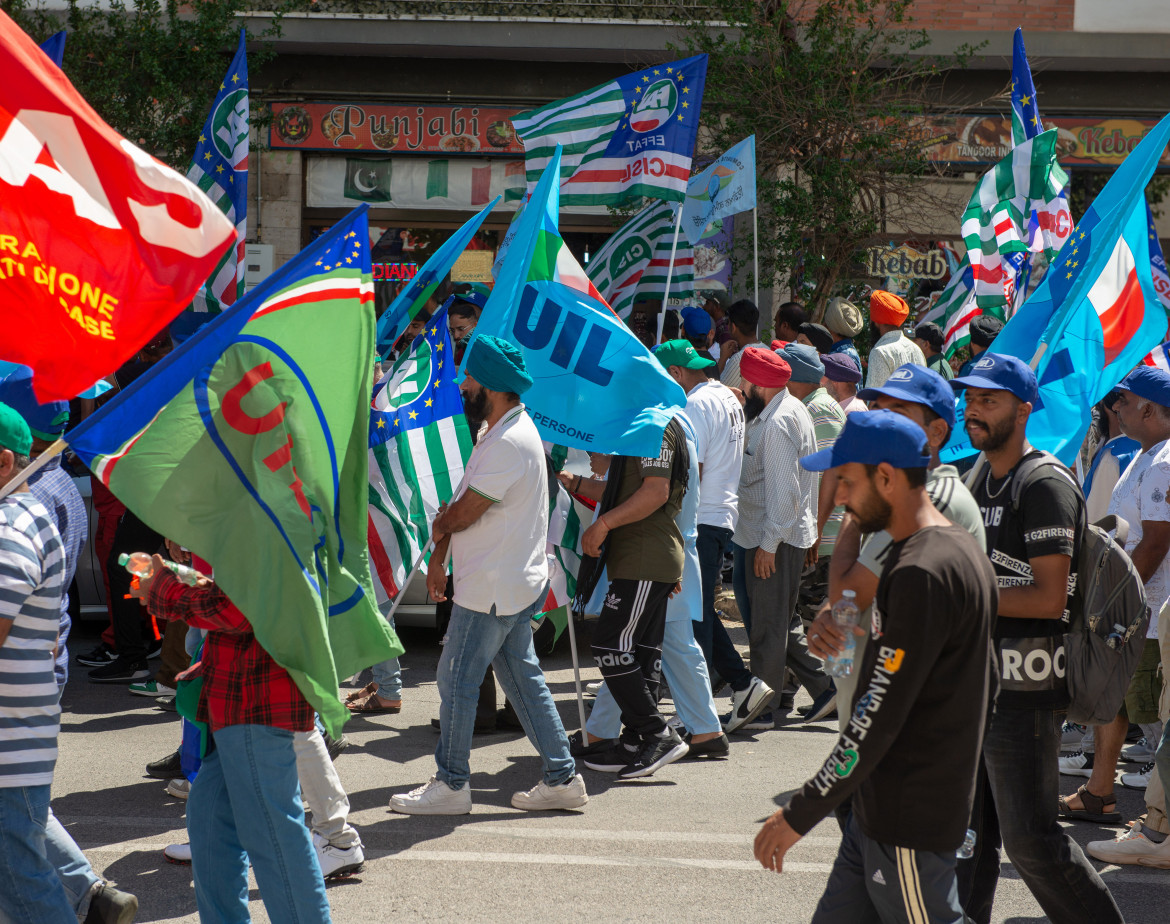Commentary
The construction of the migrant enemy
The rarity of the presence of actual immigrants in the public debate on immigration, together with the aggressive use of racist arguments, has led to a progressive dehumanization of people.

Thirty-five years ago, after the August 1989 murder of South African refugee Jerry Masslo in Villa Literno, a broad array of social forces organized the first major demonstration against racism on October 7 of that year. That date marked the birth of an anti-racist movement fighting for the rights of people of foreign origin and against all forms of discrimination.
Thirty-five years later, the situation has worsened in the world of immigration, and although the number of migrants has grown (from a few hundred thousand in 1989 to more than 5 million today), we have seen a decrease in the visibility and prominence of migrants and refugees, in parallel with an increase in the politicization of the topic and its increasingly exploitative use for electoral purposes.
The rarity of the presence of actual immigrants in the public debate on immigration, together with the aggressive use of racist arguments, has led to a progressive dehumanization of people, allowing unscrupulous politicians and journalists to shamelessly use explicitly racist arguments. This situation has given carte blanche to everyone to think of foreigners, migrants, refugees and workers as mere numbers, whose lives are evidently without value.
The statements by Renzo Lovato, Satnam Singh’s employer, placing the blame on the worker who died “due to not paying attention,” sweep under the rug the circumstances that led to his death, as well as the essential feature of what has become a new form of slavery, with the same conditions we all know, such as illegal work, exploitation and blackmail linked to the residence permit.
The statements clearly recall what Minister Piantedosi said in the aftermath of the Cutro tragedy: “The only thing that must be said and stressed is that migrants must not start [their journey].” And he added: “Desperation can never justify travel conditions that endanger the lives of their children.”
In short, the blame lies with the victims who choose to die because they are irresponsible, putting their lives and those of their children at risk. If a government minister can say this, why shouldn’t an employer who is unashamed of his cruel and criminal acts?
Piantedosi’s outrageous statements at the time of that tragedy were followed by similar choices by the entire government, which met immediately afterwards, at the site of the tragedy, to pass a law against legal immigration (thus supporting traffickers), without meeting with or offering condolences to the survivors and the families of the victims. This government has based all its measures in this area on the construction of the enemy, to be fed to the public together with an endless stream of laws and agreements in defiance of the Constitution and international law. This is an explicit form of state-sponsored racism that we must vigorously oppose by fielding an alternative from the grassroots, from the local territories.
Today, as in 1989, a tragic event arising from labor exploitation – not an “accident,” but nothing short of murder – can be the element that gets a reaction out of anti-racist Italy. This movement doesn’t represent a minority in Italy, but it is one that rarely makes itself heard, just like people of foreign origin seldom do on issues that directly affect them.
In the coming fall, near the same date that marked the start of a major mobilization for the fight against racism in our country, we must do everything possible to bring to the streets that part of Italy that does not want to surrender to the dehumanization of people, the attack against law-based Italian and European civilization and the advance of xenophobic right-wingers throughout the EU, serving the interests of parties that have built their fortunes and their business on racism, certainly not in the interest of the country.
This mobilization must be prepared with territorial assemblies, in all the places where people, especially migrants and refugees, meet to discuss and organize their participation, finally giving the protagonists a voice.
There is enough time to do this: to grow a great mobilization starting from the local territories. To overturn the idea that racism pays off at the ballot box, that talking about rights and equality is unpopular, and to assert with great force that what is needed to motivate people to participate once again is a just and viable idea of a welcoming and open society. If not now, when?
Originally published at https://ilmanifesto.it/la-costruzione-del-nemico-migrante on 2024-06-26
